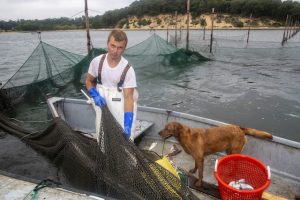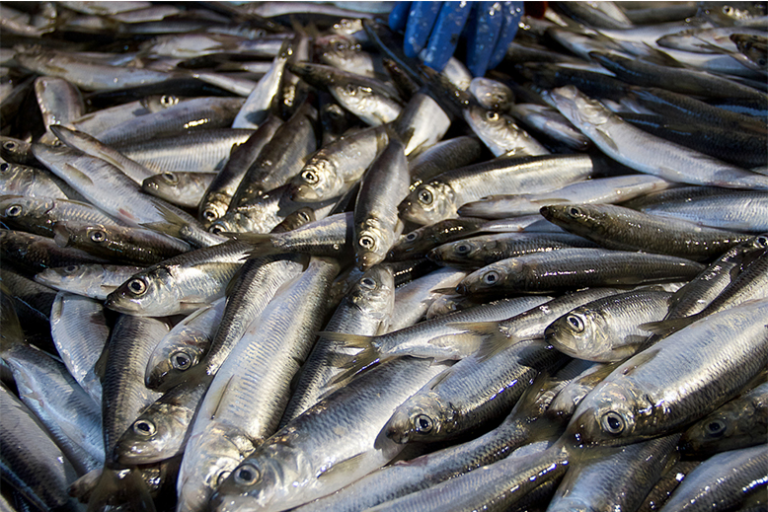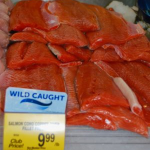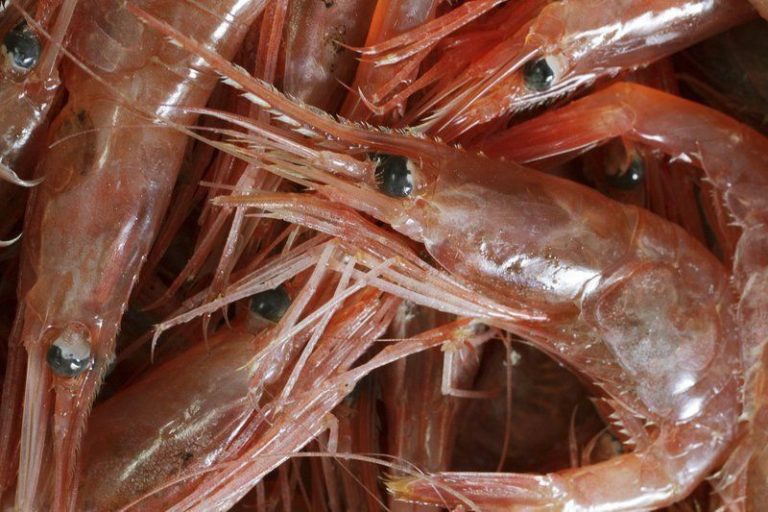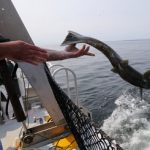Tag Archives: American Shrimp Processors Association
South Carolina shrimpers applaud decision to impose duties on shrimp imported from four countries
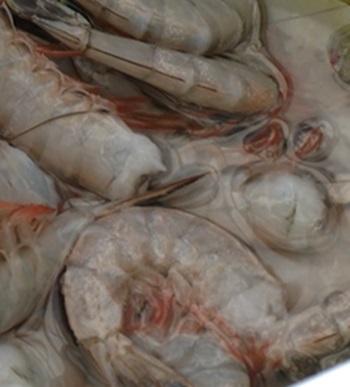 South Carolina shrimpers are celebrating the U.S. International Trade Commission’s recent decision to crack down on frozen shrimp imports from four countries. The ITC voted in favor of issuing countervailing duties on frozen, warm-water shrimp imports from Ecuador, India, and Vietnam after the U.S. Department of Commerce determined those governments were illegally subsidizing the industry. “We’re grateful because it’s an acknowledgment of what we feel and we experience in the industry and we see on a daily basis,” said Bryan Jones, a first-generation shrimper who lives in McClellanville. Jones serves as vice president of the South Carolina Shrimpers Association and was among a group of commercial fishermen who testified before the ITC in Washington, D.C. in October. more, >>CLICK TO READ<< 14:20
South Carolina shrimpers are celebrating the U.S. International Trade Commission’s recent decision to crack down on frozen shrimp imports from four countries. The ITC voted in favor of issuing countervailing duties on frozen, warm-water shrimp imports from Ecuador, India, and Vietnam after the U.S. Department of Commerce determined those governments were illegally subsidizing the industry. “We’re grateful because it’s an acknowledgment of what we feel and we experience in the industry and we see on a daily basis,” said Bryan Jones, a first-generation shrimper who lives in McClellanville. Jones serves as vice president of the South Carolina Shrimpers Association and was among a group of commercial fishermen who testified before the ITC in Washington, D.C. in October. more, >>CLICK TO READ<< 14:20
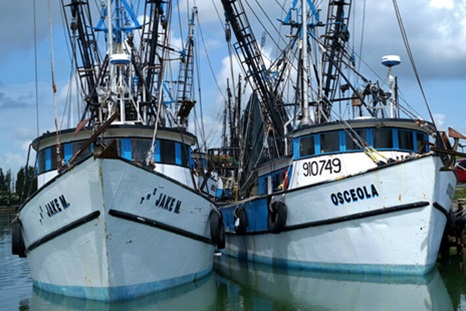
Struggling Valley shrimpers receive good news on new import measures
In an industry where bad news is the norm, shrimpers in Texas and elsewhere in the United States finally have a sliver of good news. The U.S. International Trade Commission, or ITC, on Tuesday determined that the U.S. shrimp industry is being “materially injured” by imports of frozen warm-water shrimp from Indonesia that the U.S. Department of Commerce says are being sold in this country at less than fair value, and also by shrimp imports from Ecuador, India and Vietnam that the Commerce Department says are being subsidized by the governments of those countries. As a result of the ITC’s determinations, the Commerce Department will issue “countervailing duty orders on imports of this product from Ecuador, India and Vietnam and an anti-dumping duty order on imports of this product from Indonesia,” the ITC announced Tuesday. more, >>CLICK TO READ<< 11:57
U.S. International Trade Commission votes in favor of antidumping, countervailing duties on shrimp imports
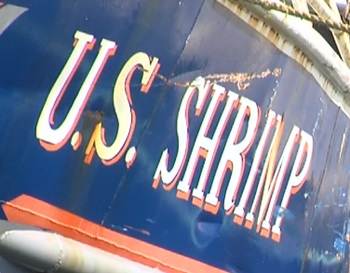 Southeast Texas fishermen are celebrating a win after the U.S. International Trade Commission voted in favor of antidumping and countervailing duties on shrimp imports from four countries. On Wednesday morning, the U.S. International Trade Commission voted in favor of antidumping and countervailing duty petitions filed by the American Shrimp Processors Association against imports of frozen warm-water shrimp from Ecuador, India, Indonesia, and Vietnam. As a result of the commission’s vote, duties ranging from 2.84% to 221.82% will be imposed on imports of shrimp from the four countries. “We are thrilled with the outcome of today’s vote,” said Trey Pearson, president of ASPA. more, >>CLICK TO READ<< 13:19
Southeast Texas fishermen are celebrating a win after the U.S. International Trade Commission voted in favor of antidumping and countervailing duties on shrimp imports from four countries. On Wednesday morning, the U.S. International Trade Commission voted in favor of antidumping and countervailing duty petitions filed by the American Shrimp Processors Association against imports of frozen warm-water shrimp from Ecuador, India, Indonesia, and Vietnam. As a result of the commission’s vote, duties ranging from 2.84% to 221.82% will be imposed on imports of shrimp from the four countries. “We are thrilled with the outcome of today’s vote,” said Trey Pearson, president of ASPA. more, >>CLICK TO READ<< 13:19
U.S. Gulf of Mexico Shrimp Fishery Achieves RFM Certification
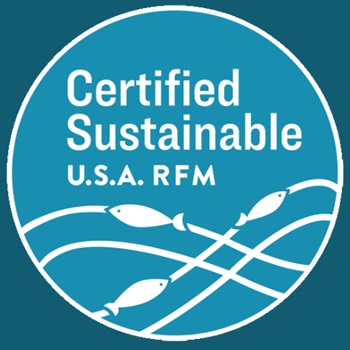 The Certified Seafood Collaborative (CSC) is pleased to announce that the U.S. Gulf of Mexico shrimp fishery (white, brown, and pink shrimp) for all five Gulf states and federal waters has achieved Responsible Fisheries Management (RFM) Certification. This is the first shrimp fishery certified to the RFM Standard. RFM Certification requires fisheries meet RFM Standard criteria which evaluate fisheries in four key areas: A) the fisheries management system; B) science and stock assessment activities, and the precautionary approach; C) management measures, implementation, monitoring, and control; and D) serious impacts of the fishery on the ecosystem. Third-party certification body Global Trust awarded the certification after a thorough evaluation of the Gulf of Mexico Shrimp fishery as reported in the Final Assessment Report. more, >>CLICK TO READ<< 06:16
The Certified Seafood Collaborative (CSC) is pleased to announce that the U.S. Gulf of Mexico shrimp fishery (white, brown, and pink shrimp) for all five Gulf states and federal waters has achieved Responsible Fisheries Management (RFM) Certification. This is the first shrimp fishery certified to the RFM Standard. RFM Certification requires fisheries meet RFM Standard criteria which evaluate fisheries in four key areas: A) the fisheries management system; B) science and stock assessment activities, and the precautionary approach; C) management measures, implementation, monitoring, and control; and D) serious impacts of the fishery on the ecosystem. Third-party certification body Global Trust awarded the certification after a thorough evaluation of the Gulf of Mexico Shrimp fishery as reported in the Final Assessment Report. more, >>CLICK TO READ<< 06:16
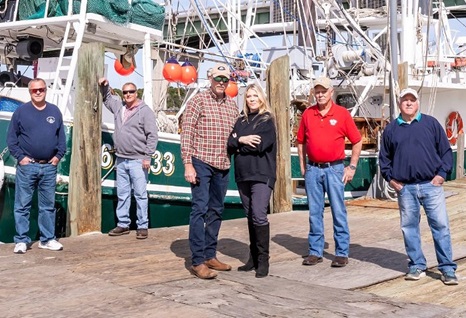
Coastal Georgia Shrimping: A new season of uncertainty, possibilities and hope
In a word, “difficult,” said Dee Kicklighter of their most recent shrimping season. Kicklighter, who has worked with Mathews for about eight years, has seen first-hand how the unpredictability of the business can be costly. “You plan for something to be one price, and then the next week you come back, and it could be potentially thousands of dollars more, depending on what you’re dealing with,” he said of fluctuating prices, including fuel. Over the years, Mathews said the ever-changing cost of fuel has taken a toll on the number of shrimpers in the industry. It’s not just Georgia shrimpers contending with the negative effects from imports. North Carolina, Texas, Louisiana, Florida and other coastal states are also feeling the friction of narrowing profit margins that threaten their way of life. Photos, more, >>click to read<< 09:15
Southeast Texas shrimpers hope two new bills will help keep imported shrimp from taking away their jobs
 The Port Arthur Shrimper’s Association held an informational meeting Wednesday to help stop shrimp dumping. Shrimp dumping is the heavy importing of shrimp from other countries. Shrimpers in Southeast Texas are also pushing to impose stricter tariffs on imported shrimp. They say regulating the amount and quality of shrimp coming in could save their livelihoods. Two new federal bills could potentially benefit shrimpers and Southeast Texans. Local shrimpers say they aren’t making any money because U.S. businesses are buying imported shrimp at low prices. Video, more, >>click to read<< 09:47
The Port Arthur Shrimper’s Association held an informational meeting Wednesday to help stop shrimp dumping. Shrimp dumping is the heavy importing of shrimp from other countries. Shrimpers in Southeast Texas are also pushing to impose stricter tariffs on imported shrimp. They say regulating the amount and quality of shrimp coming in could save their livelihoods. Two new federal bills could potentially benefit shrimpers and Southeast Texans. Local shrimpers say they aren’t making any money because U.S. businesses are buying imported shrimp at low prices. Video, more, >>click to read<< 09:47
American Shrimp Processors Association Welcomes House China Select Committee’s Bipartisan Trade Enforcement Recommendations
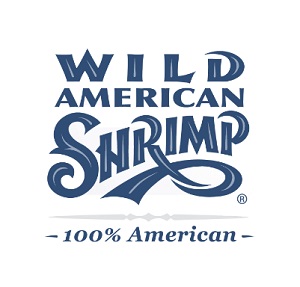 On December 12, 2023, the House Select Committee on the Chinese Communist Party adopted a bipartisan report with scores of policy recommendations to reset the terms of the U.S. economic relationship with China and help domestic producers compete in the face of China’s non-market practices. The American Shrimp Processors Association (ASPA) welcomed the recommendations focused on strengthening the enforcement of U.S. trade remedy laws as a key component of this strategy. “American shrimp processors and harvesters have been fighting China’s unfair trade practices for nearly twenty years,” said ASPA President Trey Pearson. “The domestic shrimp industry is made up of small, family-owned businesses, and we need our trade remedy laws to be strengthened and vigorously enforced for us to have a chance to compete with foreign producers and exporters supported by the Government of China.” more, >>click to read<< 09:46
On December 12, 2023, the House Select Committee on the Chinese Communist Party adopted a bipartisan report with scores of policy recommendations to reset the terms of the U.S. economic relationship with China and help domestic producers compete in the face of China’s non-market practices. The American Shrimp Processors Association (ASPA) welcomed the recommendations focused on strengthening the enforcement of U.S. trade remedy laws as a key component of this strategy. “American shrimp processors and harvesters have been fighting China’s unfair trade practices for nearly twenty years,” said ASPA President Trey Pearson. “The domestic shrimp industry is made up of small, family-owned businesses, and we need our trade remedy laws to be strengthened and vigorously enforced for us to have a chance to compete with foreign producers and exporters supported by the Government of China.” more, >>click to read<< 09:46
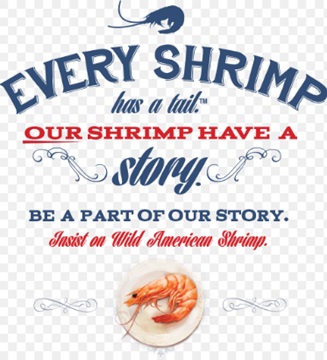
American Shrimp Processors Association Launches Trade Petitions Addressing Unfair Dumping and Illegal Subsidies
Today, the American Shrimp Processors Association (ASPA) filed trade petitions seeking antidumping duties on imported frozen warmwater shrimp from Ecuador and Indonesia and countervailing duties on imported shrimp from Ecuador, India, Indonesia, and Vietnam. The U.S. shrimp market has been overwhelmed by massive quantities of underpriced shrimp imports, resulting in unsustainably low dockside prices, falling domestic market share, significantly lower profit margins, and historically high inventory levels. >>click to read<< 07:56

U.S. Shrimp Industry and Congressional Allies Urge ITC to Maintain Antidumping Orders on Imported Shrimp
The United States shrimp industry recently made its case to maintain antidumping orders on imported shrimp from India, Thailand, and Vietnam before the International Trade Commission (ITC). On April 11, 2023, the ITC conducted a hearing in connection with its Third Sunset Review on the antidumping orders. The American Shrimp Processors Association (ASPA) presented five witnesses from shrimp processors in Texas, Louisiana, Mississippi, and Florida who relayed stories about the continuing injury caused by ever- increasing volumes of dumped imported shrimp. >click to read< 13:58

Mississippi: Shrimp industry leader Richard Gollott has passed away
Richard Gollott, a longtime commissioner with the Commission on Marine Resources and seafood industry leader, died Sunday after a long battle with cancer. He was 77. Gollott opened Cap’n Gollott Seafood in 1969, which grew to be one of the largest oyster processing companies on the Gulf Coast. He served as president of Gollott’s Oil Dock & Ice House, Inc., and vice president of Golden Gulf Coast Pkg Co., Inc, working alongside his son and brother as partners. Gollott was a lifelong resident of the Coast and a founding member of the Southern Shrimp Alliance. He also was a board member of the American Shrimp Processors Association. >click to read< 14:21
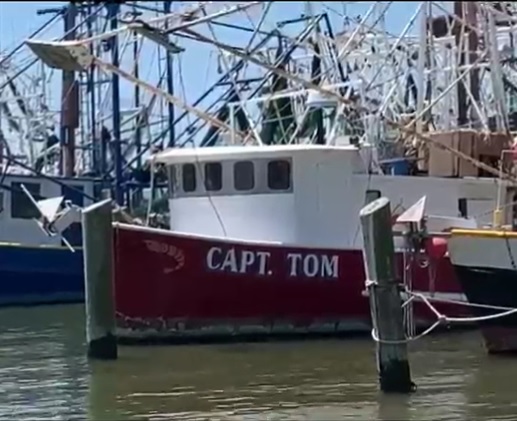
Shrimp season threatened by Coronavirus pandemic
With seafood processors across South Mississippi closed for business, the shrimping season slated to open in as few as four weeks could be sidelined by another disaster. Because many coronavirus restrictions are still in place on the Gulf Coast, processors, shrimpers and the restaurant industry could take a hit for the second year in a row. Freshly caught shrimp will soon be harvested from the Mississippi Sound, but with coronavirus restrictions still in place, seafood processors that have been closed already have plenty of stock on ice. video, >click to read< 12:21
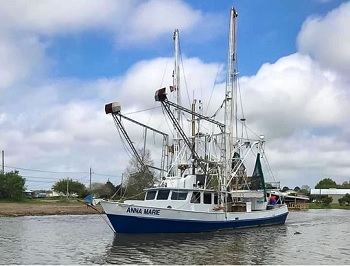
‘Another punch in the gut’: Gulf Coast shrimpers navigate the coronavirus crisis
Shrimping is a hard business. Gulf Coast shrimpers, who bring in three quarters of the nation’s catch, have been battered with waves of bad luck. Hurricanes. A flood of cheap imports. The BP Deepwater Horizon oil spill in 2010. Fresh water diversions that kill seafood. And now the coronavirus. Restaurants buy 80% of both imported and domestic shrimp, according to the Southern Shrimp Alliance. With restaurants closed or offering only takeout, no one is buying much shrimp. Next month would typically launch the peak of shrimp season as Gulf states begin their annual opening of nearshore waters to shrimping. >click to read< 07:45
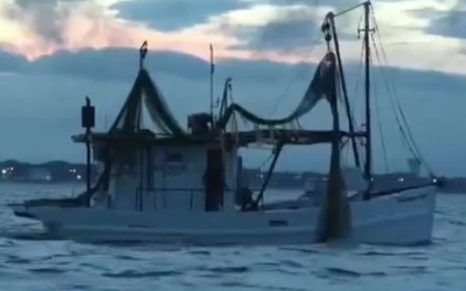
Commercially Caught Wild American Shrimp From Gulf of Mexico Remain Safe to Eat
For the commercial wild-caught shrimp industry in the Gulf of Mexico, it’s business as usual. In spite of reports coming out of the Gulf of Mexico about a freshwater influx due to flooding in the Midwest, along with some resulting, close-to-shore algae blooms, commercial shrimp processors are reporting that this year, though volumes are lower, shrimp quality and size are good as ever. “The Mississippi Department of Marine Resources (MDMR) is continuing to test water and fish samples to ensure seafood safety in Mississippi waters,” >click to read< 09:54
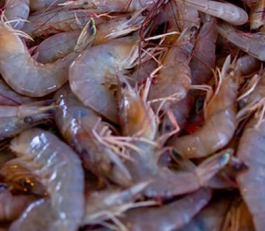
It’s business as usual! Commercially Caught Wild American Shrimp From Gulf of Mexico Remain Safe to Eat
For the commercial wild-caught shrimp industry in the Gulf of Mexico, it’s business as usual. In spite of reports coming out of the Gulf of Mexico about a freshwater influx due to flooding in the Midwest, along with some resulting, close-to-shore algae blooms, commercial shrimp processors are reporting that this year, though volumes are lower, shrimp quality and size are good as ever. “The Mississippi Department of Marine Resources (MDMR) is continuing to test water and fish samples to ensure seafood safety in Mississippi waters,” said MDMR Executive Director Joe Spraggins. >click to read< 08:41
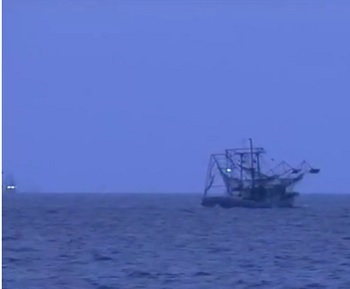
Water conditions causing ‘catastrophic’ season for in-shore and near-shore shrimpers
The Bonnet Carre Spillway has been open for 100 days as of Friday and the influx of freshwater still pouring into the Mississippi Sound is taking a major toll on coast fishermen. The shrimp season opened two weeks ago but, by most accounts, the freshwater in the Mississippi Sound is making it a season to forget for those who make their living on the water. Shrimpers are having to adjust where they drop their nets, said David Veal director of American Shrimp Processors Association. Video, >click to read< 14:56
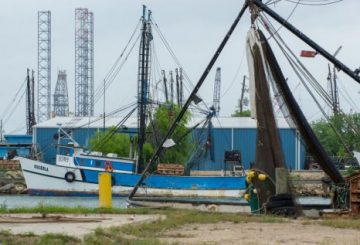
SIMP: Federal monitoring program will track foreign imports
A decision by Congress to add imported shrimp to the Seafood Import Monitoring Program is good news for an industry not used to hearing good news. The Gulf shrimp industry has struggled against a rising tide of cheap foreign imports for years, making it tough for domestic shrimp boat operators to make a living. Combined with the factors, this situation has led to a dramatic decline in the size of the Brownsville-Port Isabel shrimp fleet.,, The purpose is to thwart illegal, unreported and unregulated fishing activity. >click to read<10:38
Shrimp fishermen take issue with proposed TED rule
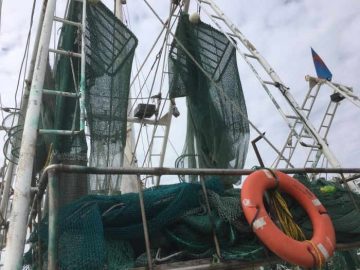 Shrimp boats that fish offshore already use TEDs. Turtle excluder devices use metal grates that prevent turtles from getting caught in the nets. The new rule would apply to skimmer nets, which generally shrimp in shallower waters. “It would affect about half of our fleet, which currently uses skimmer nets. They’ve been having to adhere to tow time restrictions. Now, they’ll have to use TEDs instead,” said Rick Burris, who directs the DMR Shrimp and Crab Bureau. The proposed regulation to expand the use of TEDs is the result of a federal lawsuit filed by a nonprofit conservation group called Oceana, which blames commercial fishermen for killing hundreds of sea turtles each year. “Certainly they’re being singled out. Oceana has had the shrimp industry as a target for a long time. Particularly as it relates to turtles,” said David Veal, executive director of the American Shrimp Processors Association. Veal says the statistics cited by the conservation group are suspect. Video, read the rest here 08:14
Shrimp boats that fish offshore already use TEDs. Turtle excluder devices use metal grates that prevent turtles from getting caught in the nets. The new rule would apply to skimmer nets, which generally shrimp in shallower waters. “It would affect about half of our fleet, which currently uses skimmer nets. They’ve been having to adhere to tow time restrictions. Now, they’ll have to use TEDs instead,” said Rick Burris, who directs the DMR Shrimp and Crab Bureau. The proposed regulation to expand the use of TEDs is the result of a federal lawsuit filed by a nonprofit conservation group called Oceana, which blames commercial fishermen for killing hundreds of sea turtles each year. “Certainly they’re being singled out. Oceana has had the shrimp industry as a target for a long time. Particularly as it relates to turtles,” said David Veal, executive director of the American Shrimp Processors Association. Veal says the statistics cited by the conservation group are suspect. Video, read the rest here 08:14
Some Louisiana shrimpers say they’re going on strike over low prices.
 “Opening day of the May season we got $2.70 for 40-50s,” shrimper Warren Delacroix of New Orleans said, discussing one common size of shrimp. “Right now they are $1.35 at some of the docks.” Association leaders said shrimpers will tie up their boats for a week or longer to allow the association to negotiate with processors. Read the rest here 16:10
“Opening day of the May season we got $2.70 for 40-50s,” shrimper Warren Delacroix of New Orleans said, discussing one common size of shrimp. “Right now they are $1.35 at some of the docks.” Association leaders said shrimpers will tie up their boats for a week or longer to allow the association to negotiate with processors. Read the rest here 16:10






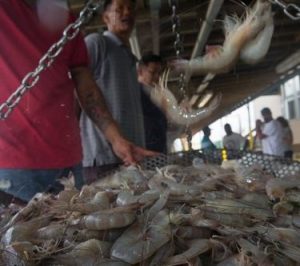
 that will benefit. According to NOAA, it’s foreign countries. In an effort to change that, members of the American Shrimp Processors Association recently met with Washington lawmakers urging them to support legislation they believe will help the shrimp industry. The “Leveling the Playing Field Act” would allow American industries, such as the shrimping industry, to be able to compete with foreign imports.
that will benefit. According to NOAA, it’s foreign countries. In an effort to change that, members of the American Shrimp Processors Association recently met with Washington lawmakers urging them to support legislation they believe will help the shrimp industry. The “Leveling the Playing Field Act” would allow American industries, such as the shrimping industry, to be able to compete with foreign imports. 



























